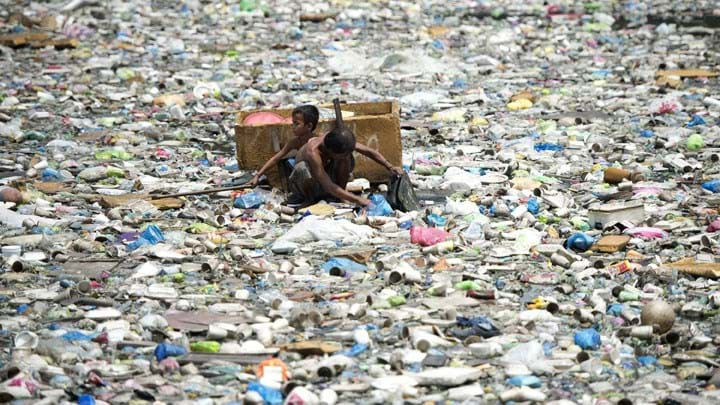We Must Go Round in the Right Circles
WE’RE all aware that humankind is struggling against the consequences of our own creation, but it sometimes takes a fact, a figure – or in my case a photograph – to snap it back to the centre of your attention.
For me, it was an image shared by Joseph Bailey in the latest IChemE Centenary webinar that showed a father and son floating in a river filled with plastic pollution on a boat they made from polystyrene searching for items they could sell to junkshops in Manila (p20). It’s startling and disheartening.

Since we’re discussing reuse, I hope you’ll forgive me for recycling a Shakespeare quote (and slightly upcycling it for my own needs), but what we’re seeing is society “hoist by its own petard” – that is we’re being defeated by our own inventions. In the case of plastic, the very properties that make it such an attractive product in such a wide variety of applications have seen it become a near everlasting scourge in our environment.
If we take a step back, the previous line spoken by Hamlet refers directly to engineers: “For ‘tis the sport to have the enginer Hoist with his own petard”.
Yet the unforeseen consequences of our inventions are, as shown so starkly by that father and son in the Philippines, impacting many more than just the inventor, and we’re now pressed into searching for ways to reinvent ourselves out of the far-reaching problems of our own making.
So it is encouraging to discover the research and development that scientists and engineers are pushing ahead with to overcome the issues created by the materials we use to make our modern world. There is the early-stage research into chemicals recycling processes that would help prevent plastics from reaching the environment (p31). There are the efforts inspired by nature and Ancient Rome to produce greener cement (p28). And there are projects underway to find cleaner ways to dye our clothes and close the loop on water use (p22).
Circularity is the watchword here. It must become embedded in our education, our thinking, and the projects we undertake. As future materials developer Fang Xie said (p20), we need to guard against inventing solutions today whose impacts others will have to clean up tomorrow.
That sort of circularity must be avoided.
I welcome reader feedback and comment. To share your views, please email: letters@icheme.org
Correction: this article mistakenly referred to the pictured father and son being in Indonesia when they were in fact photographed in the Philippines.
Recent Editions
Catch up on the latest news, views and jobs from The Chemical Engineer. Below are the four latest issues. View a wider selection of the archive from within the Magazine section of this site.




